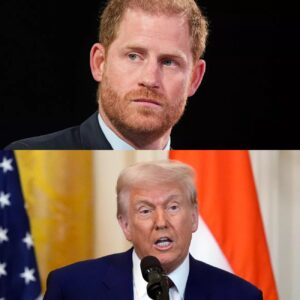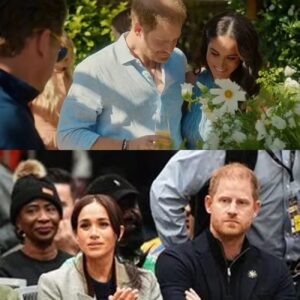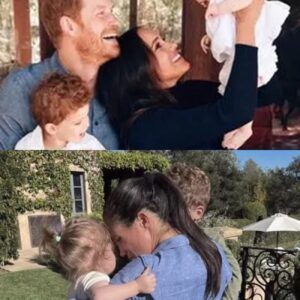In his prime, Michael Owen was one of the best strikers that England has ever produced. Although diminutive, the prodigal striker began his football career in emphatic style. Exploding onto the scene with electric pace and fine finishing, he progressed through the Liverpool youth team and scored on his Premier League debut in May 1997, becoming the club’s youngest goalscorer, at 17 years, 143 days.
With the Reds, he went onto win the FA Cup, UEFA Cup, two League Cups and UEFA Super Cup before a late spell with Manchester United saw him win the Premier League at long last at the end of his career.
For England, Owen shone particularly bright at the 1998 World Cup, scoring a memorable strike in England’s defeat to Argentina at the Round of 16 stage, in which his jinking run dissected the Albiceleste’s core with ease before a brilliant finish. From that dramatic emergence, Owen went on to play for England for another 10 years, managing a fine record of 40 goals in 89 games to put himself sixth in the all-time Three Lions scoring chart.
Despite Owen’s poor reputation for injuries, the striker played with some serious talent over the years. Read on, as GIVEMESPORT recalls the all-time England squad he revealed to BBC Sport in 2019.
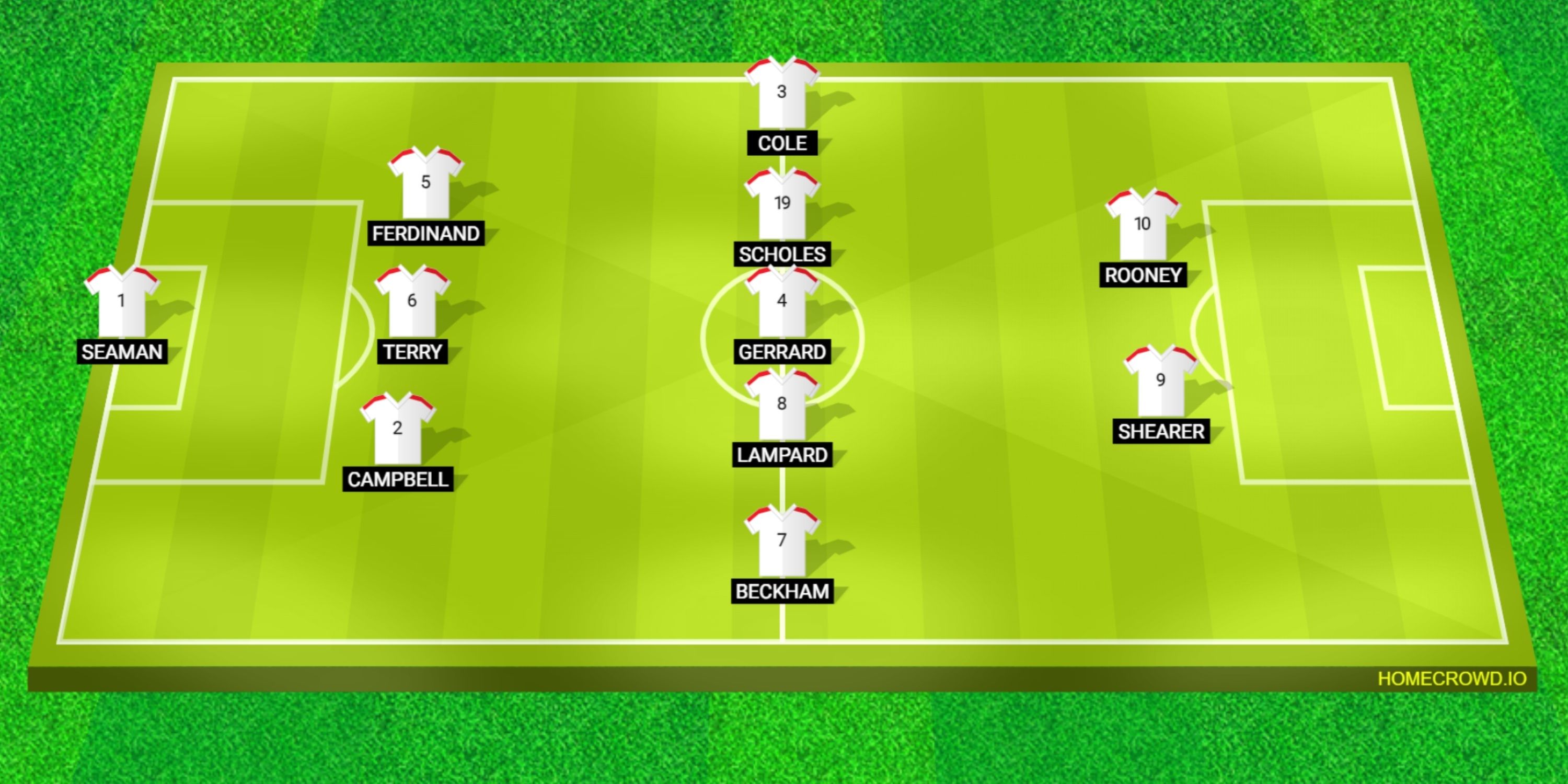
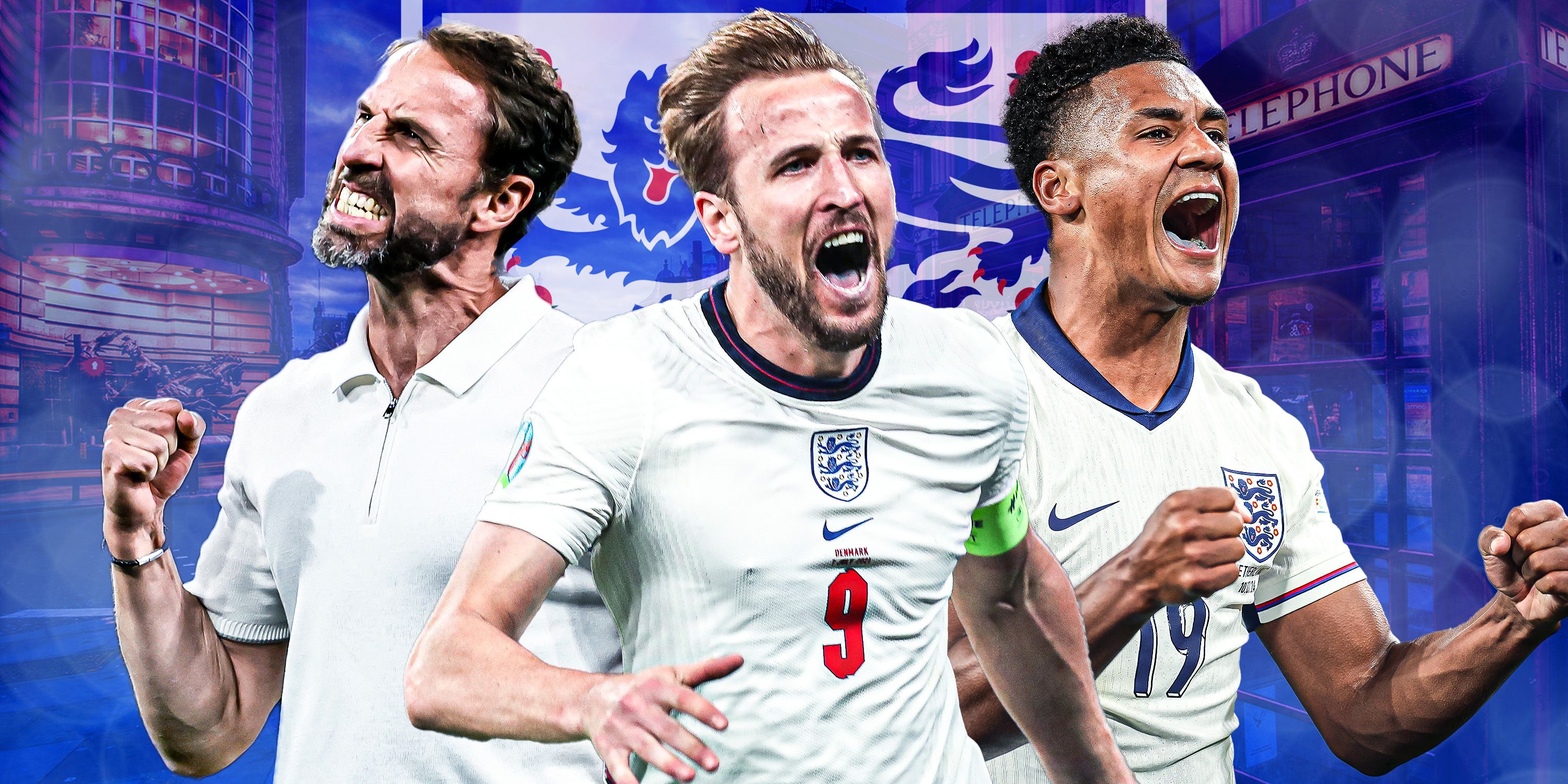
RELATED
Ranking the 7 Greatest England Moments Under Gareth Southgate
England have made some of the best memories in the nation’s footballing history under Gareth Southgate.
Goalkeeper & Defence
David Seaman; Rio Ferdinand, John Terry & Sol Campbell
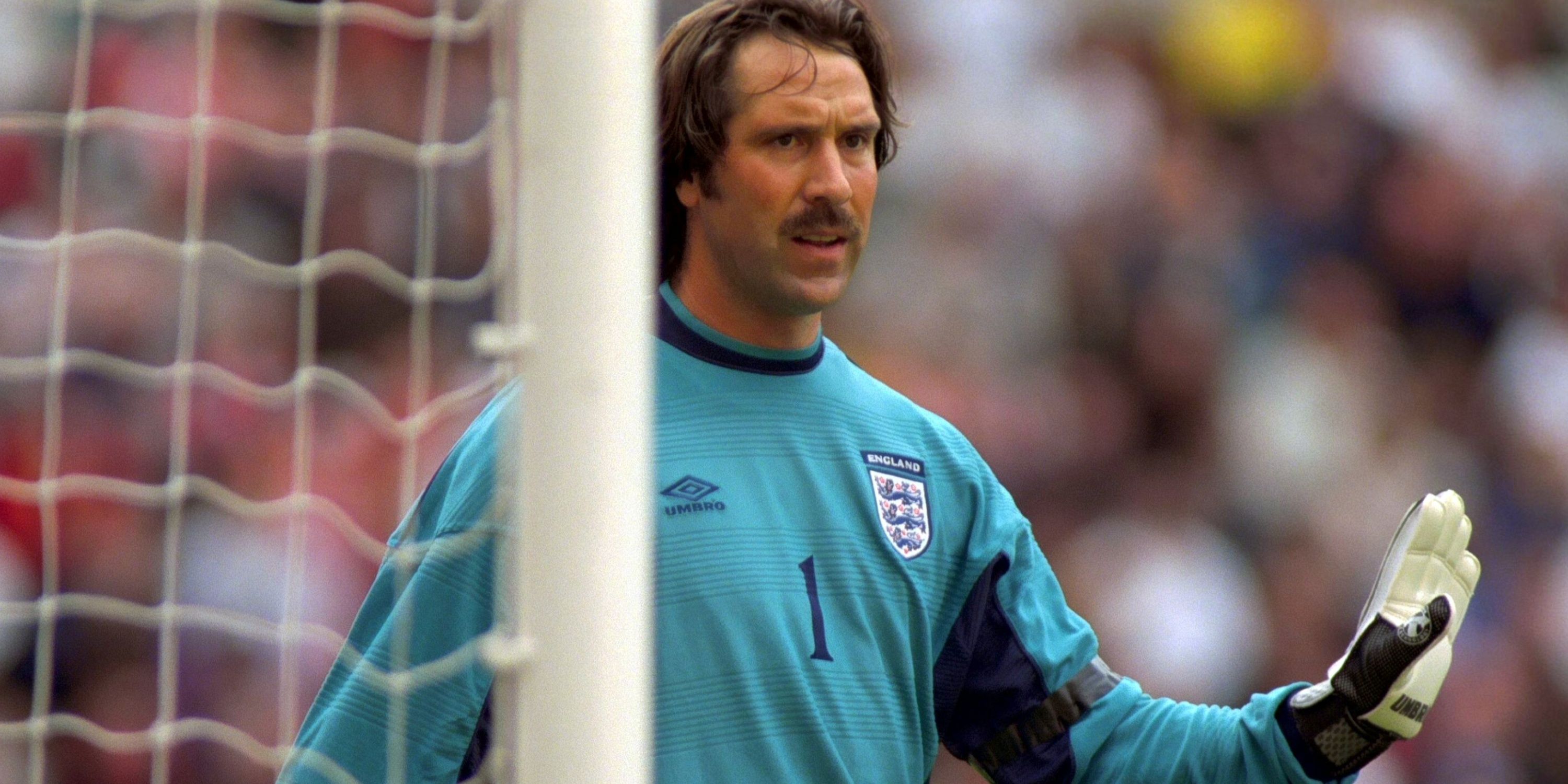
At the very base of the 3-5-2 formation Owen picked, coached by Glenn Hoddle, David Seaman starts in goal. At club level, Seaman, of course, starred predominantly for Arsenal, as well as Birmingham, QPR and Man City after his career began with Peterborough United. For England, the 75-capped stopper featured as part of the Italia ’90 squad before coming home with injury. He was outstanding in Euro ’96’s semi-final run and notably saved a penalty from Scotland’s Gary McAllister. However, 2002 saw him beaten from long range by Ronaldinho’s famous free-kick.
On the left of three centre-backs, Owen selected Rio Ferdinand. Ferdinand was the youngest defender to play for England when he made his debut in 1997, and was one of only three players to be named in four World Cup squads but never played at a Euros – he sat out Euro 2004 after missing a drugs test. John Terry and Sol Campbell followed. Terry captained the Three Lions 32 occasions over nine years. Campbell was the first player to feature for England in six consecutive major tournaments and was captain on three occasions.
Michael Owen’s Goalkeeper and Defence
England Caps
Goals/Clean Sheets
David Seaman
75
40 (CS)
Rio Ferdinand
81
11
John Terry
78
6
Sol Campbell
73
1
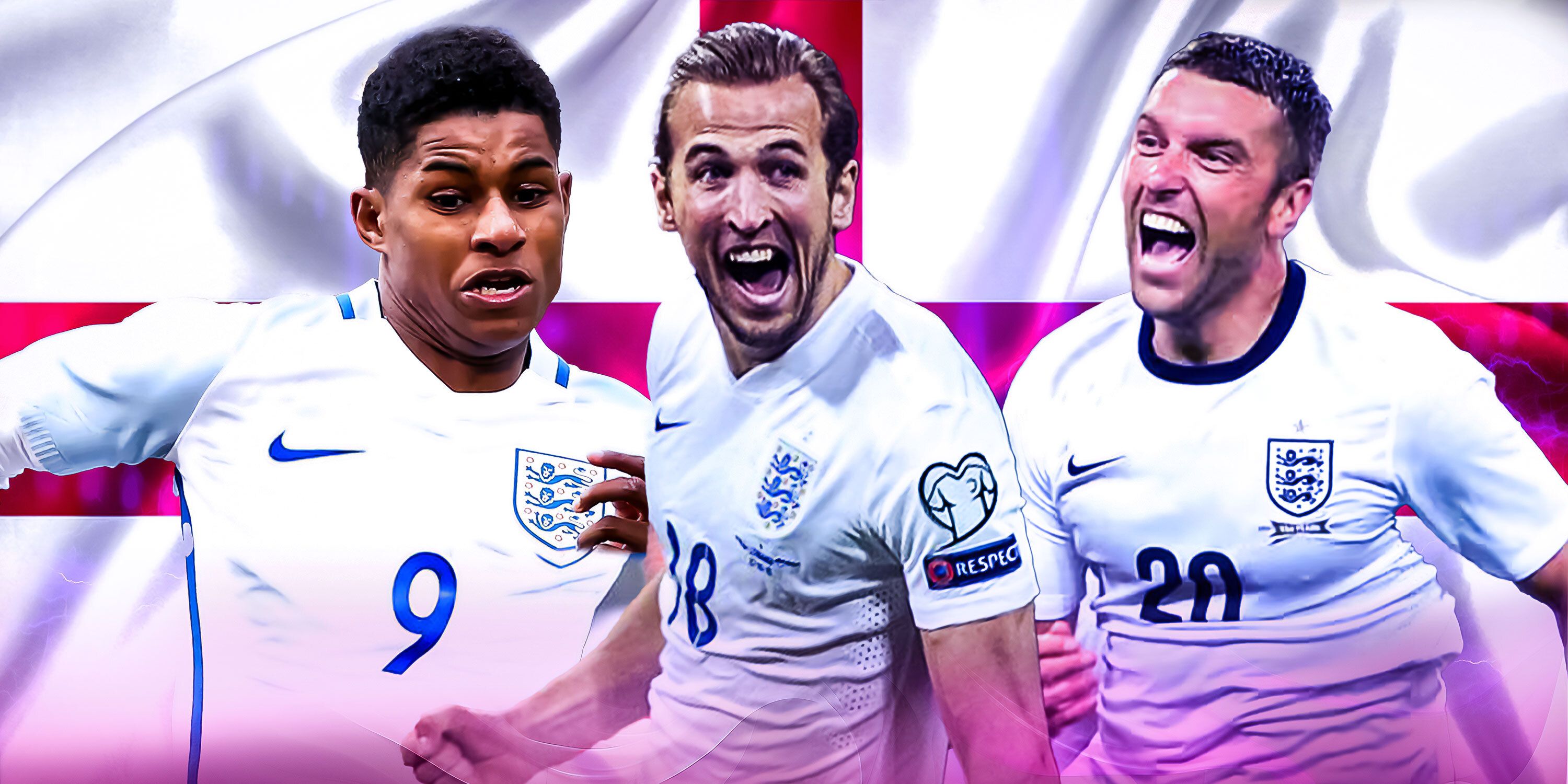
RELATED
Ranking the 10 Best England Debuts of All Time
There’s no greater pride than playing for your country — and these players started their journeys with triumph.
Midfield
Ashley Cole, Paul Scholes, Steven Gerrard, Frank Lampard & David Beckham
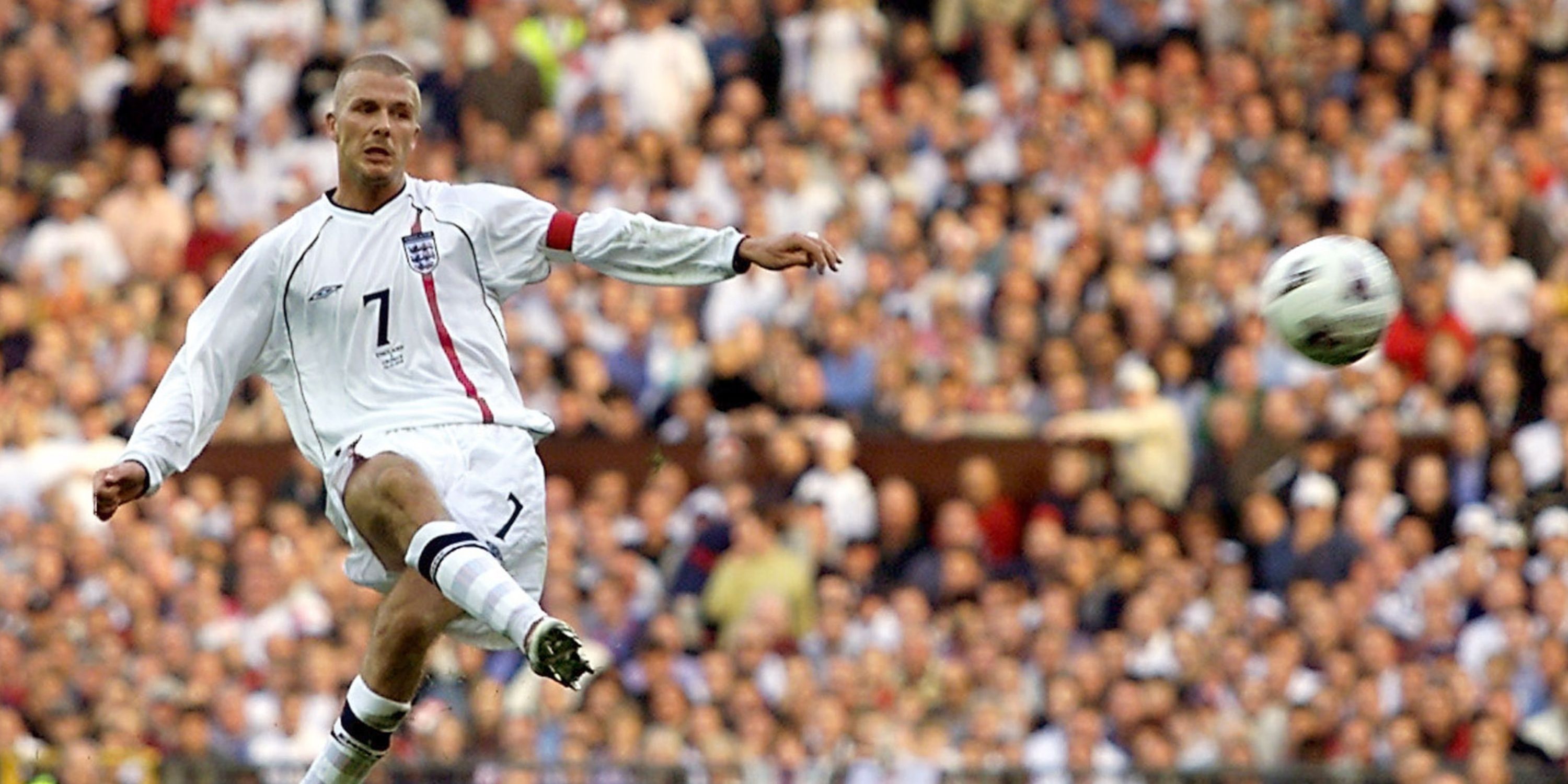
In the centre of the park, Owen selected an odd mix. Ashley Cole starts off the lineup off the left wing, with a bizarre decision to field David Beckham at RWB, a position he rarely played. While Cole was superb in his prime, he holds an unwanted record. No outfield player has played more times for England without scoring. That said, only Peter Shilton has played in more World Cup finals games for the Three Lions.
Beckham notably went from pantomime villain in an England shirt, after being sent off vs Argentina in 1998, to the hero – carrying England to the next World Cup virtually single-handed. He scored in three World Cups and became the first Englishman to do so. The Manchester United and Real Madrid icon was captain on 59 occasions. In a central three, Owen placed Paul Scholes, Steven Gerrard, and Frank Lampard.
Scholes was debatably “marginalised on the left during the latter stage of his international career” according to BBC’s 2019 article, but still scored at Euro 2000 and 2004, as well as at the World Cup in 1998. Inside him, is Gerrard. Although the Liverpool man missed the 2002 World Cup through injury, he still went on become England’s fourth most-capped player. Interestingly, he didn’t lose in his first 21 games, and scored at two World Cups and a Euros. Lampard took nearly five years to cement himself in the England team – and then was virtually irreplaceable for a decade. Only 10 men have scored more goals for their country and nobody had scored more penalties than his nine, until Harry Kane bagged a whopping 22 and counting.
Michael Owen’s England Midfield
England Caps
Goals
Ashley Cole
107
0
Paul Scholes
66
14
Steven Gerrard
114
21
Frank Lampard
106
29
David Beckham
115
17
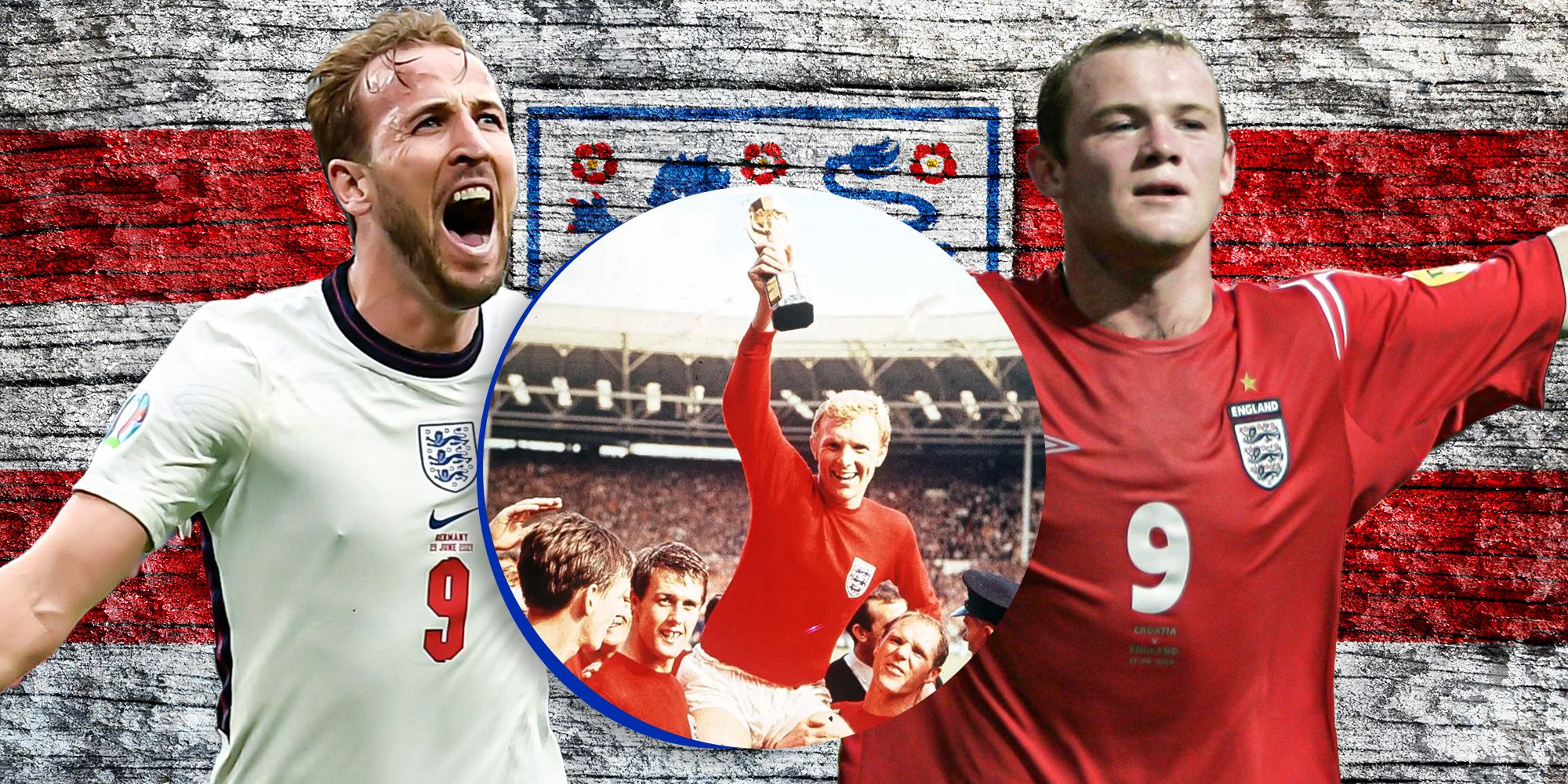
RELATED
Ranking the 10 Best England Teams in History
Despite decades of disappointment, England have produced some world-class sides over the years. Here are the best of all time.
Attack
Wayne Rooney & Alan Shearer
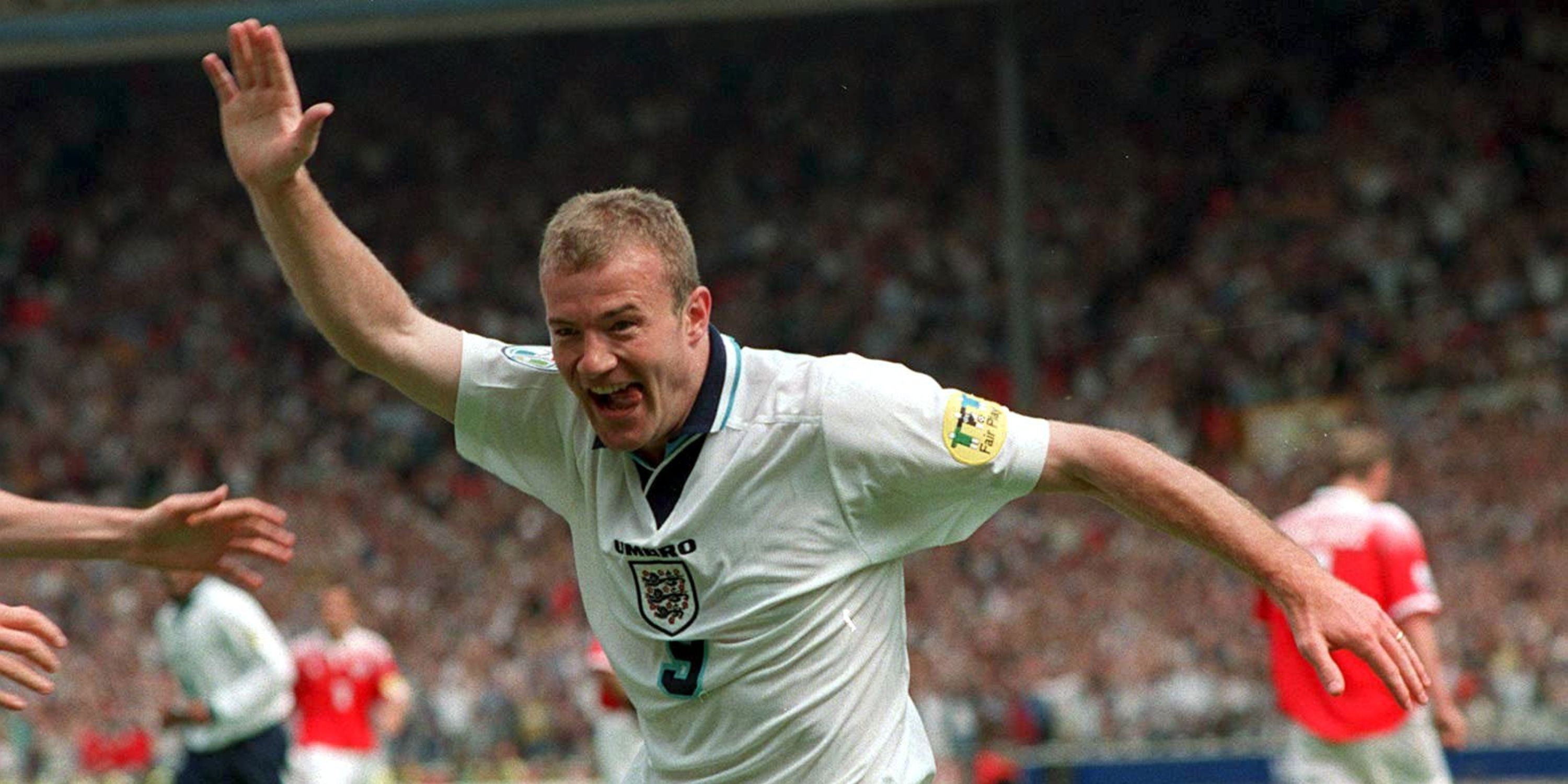
Despite a Twitter spat that saw Owen and Alan Shearer clash, after the latter claimed the former Liverpool man didn’t try in his stint at Newcastle, Owen selected Shearer up top alongside Wayne Rooney. Shearer scored on his debut alongside Gary Lineker and on his final appearance alongside Michael Owen. Additionally, he captained England at his only World Cup and was top scorer at Euro 96, with five goals in as many games.
England’s record goalscorer and record outfield appearance maker, again until Kane snatched the record for goals, Wayne Rooney captained England on 22 occasions and remains the youngest goalscorer at the age of 17 years, 317 days. The Evertonian perhaps peaked as early as Euro 2004 when he scored four times before picking up an injury. He only scored three times in his five subsequent major tournaments, ending his days in midfield at Euro 2016 with a shock defeat to Iceland.


